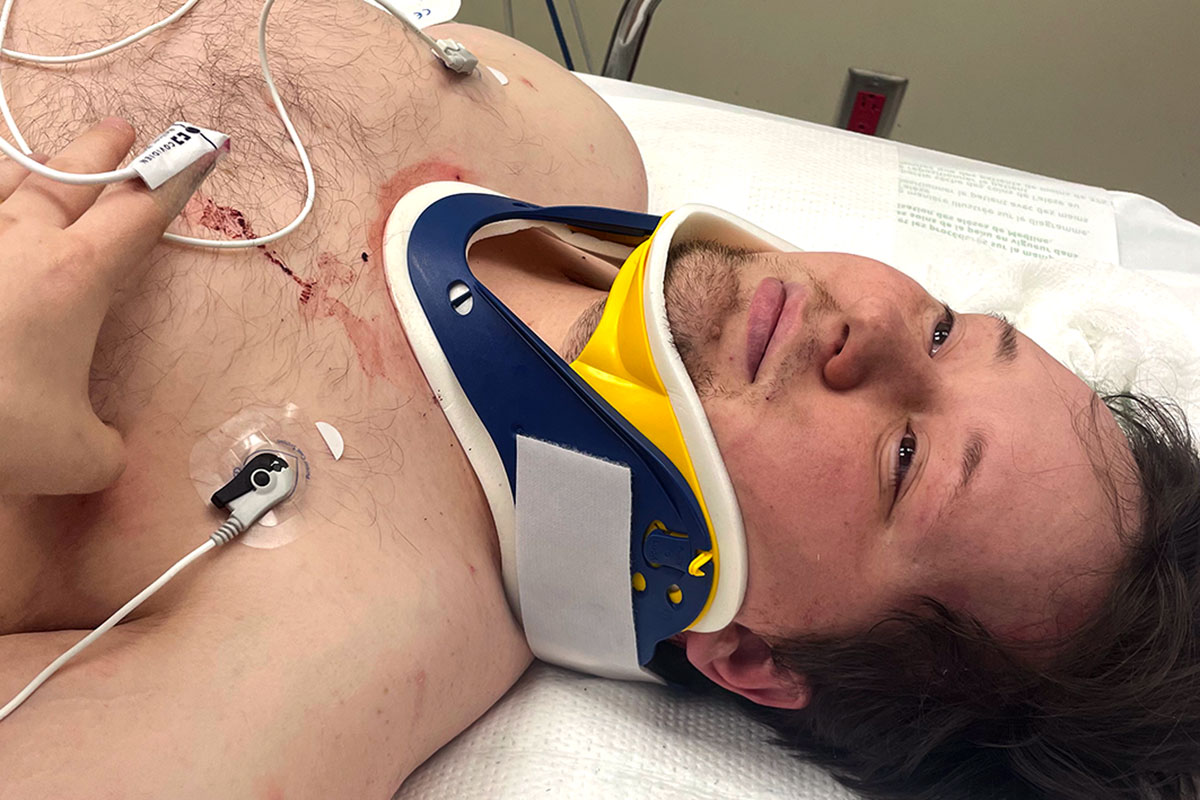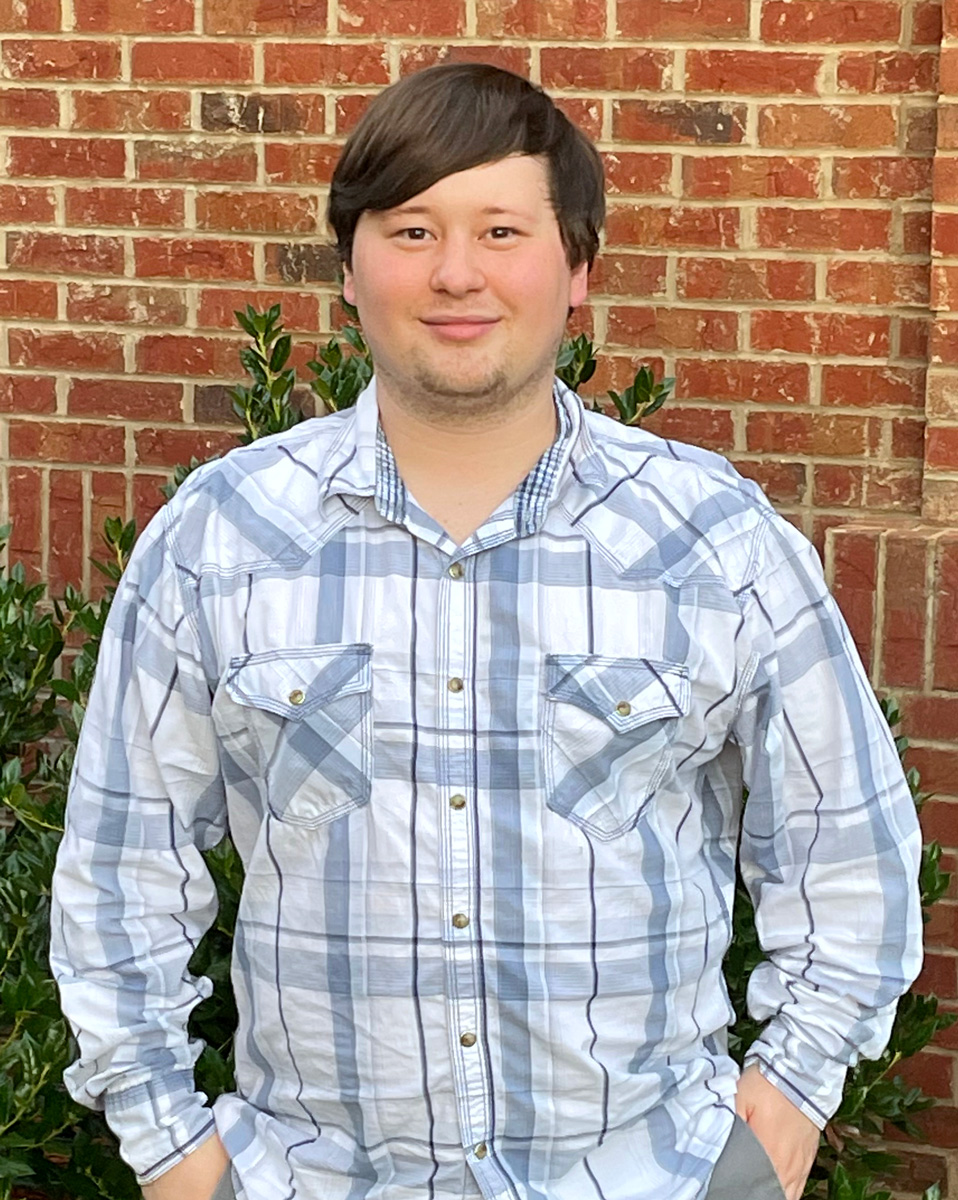A swarm of medical-school students surrounded my gurney, lifting me onto a hospital bed inside the University of Mississippi Medical Center. My eyes drifted to where the wall to my right met the ceiling as I barely paid attention to the doctors cutting me out of my clothes and thoroughly patting me down, checking for injuries.
Let’s rewind.
An hour earlier on Wednesday, Jan. 3, I had decided to use my afternoon break to change the oil of my partner’s car. I had done this before without issue. I had my oil pan in place and my wrench in hand as I jacked up the front of the vehicle and crawled underneath. The front passenger tire was off and leaning against the sidewalk, so I theoretically had extra space to operate.
Lying on my side, I loosened the bolt to my oil reserve. Just before I could twist again, though, and actually release the oil, I heard a scraping of metal and watched the tires roll forward. The jack had slipped. A second later, I was pinned to the ground, bracing the best I could with my left shoulder. Metal pressed into the side of my head behind my left ear. I could feel the blood trickling down my neck and puddling on the concrete below.
The car had fallen on top of me.
“Help!” I screamed, panicking as the pressure in my head rapidly built. “Help! I’m dying!”
‘I’m Going to Die at 27’
I don’t think I’ll ever forget the sound of my own voice saying those words. I hate sounding dramatic, but I had processed the situation and knew it to be true: Without intervention, death was coming for me. All the times I narrowly avoided vehicular accidents while driving, those moments I had called “near-misses,” they felt so hypothetical. This was different.
“Oh,” I thought, time slowing down as my mind raced. “I’m going to die. I’m going to die at 27. I have so much I want to do, so many people I don’t want to leave behind, but I’m dying anyway.”
“Hold on!” I heard. “Keep pushing, baby. I’m getting help!” One of my neighbors, a woman in her 60s I now know as Rosemary, had seen me and started banging on doors. They acted so quickly, thank God. Road rash was a small price to pay as I pushed against the pavement with renewed strength. A trio of women and a man they flagged at the nearby gate lifted the front of the car enough for me to shimmy out.
My first instinct was to wipe off my blood-coated hand and retrieve my phone from my pocket so that I could call Hannah, my spouse. Hannah answered, and a neighbor told them to come down, that I had an accident.
Rosemary, an off-duty nurse, sat me upright, wrapped cloth around my head and applied pressure to my wound. Bless her. My vision was going out; all the colors I knew I should have been seeing were muted. My hearing was muffled. In what felt like seconds, Hannah had rushed from our third-floor apartment and practically fell to their knees when they saw me.
“Baby!” they exclaimed, their eyes already welling with tears. I must have looked horrible. I had never seen them look so scared, and I hope they never make that expression again. I mumbled that I was fine, and they nodded in an obvious attempt at maintaining composure for my sake and carefully leaned in to kiss me. I didn’t realize how cold I was until I felt the warmth of their lips.
Everyone around looked so panicked, so I naturally started joking with them, which seemed to calm them down. Minutes later, an ambulance arrived, and EMTs loaded me inside. “Oh dear, I’ll never be able to pay for this ride,” I whispered to myself with a sigh. Once they administered IVs into my left bicep and the back of my right hand, I began to feel better, even as the pothole-filled Jackson roads jostled me along the way to the hospital, causing me to wince.
One of the EMTs told me point-blank that I would not have lasted another minute under that car—that if no one had heard me in time or if they hadn’t been strong enough, I would have died.
By the time the trauma team finished assessing me, I felt like myself again. They allowed Hannah to visit my room. We held hands and somewhat silently communicated that we would reserve our tears for later. At that moment, we were just relieved I was alive.
Both my parents and my in-laws drove two hours to see how I was doing. Following multiple x-rays, CTs and other tests, along with seven stitches, UMMC released me five hours after my arrival.
‘A Legacy of Empathy’
Because I work from home anyway, I offered to clock in the next day after telling my Mississippi Free Press colleagues of my incident, but they insisted I take a few days off to process and recover. Bless them, because the next day the reality of how close I was to not being here anymore took a toll.
At times, I feel like an imposter because my relatively minor injuries—a fractured clavicle and a six-inch laceration on my head—don’t seem to match the story of what happened to me. I suppose that I should accept the miracle. As it turns out, the car had rolled forward and partially landed on the sidewalk of our parking lot. If it hadn’t, or if it had rolled backward, I would have died instantly.
Yet, two weeks later, my head wound has healed, and I mostly have strength and mobility in my left arm and shoulder again.
Nevertheless, I am grateful for life. And the accident led me to ponder: How would people have remembered me?
When I do eventually pass, I want to leave behind a legacy of empathy that leads those who knew me to call me a kind man. If I’m lucky, perhaps I may be remembered in the written works I aspire to create in my lifetime.
How would you like to be remembered? Perhaps you want to leave behind a legacy of generosity, or a legacy of encouragement. Not any of us is promised tomorrow, as cliché as those words may sound. Therefore, we should take a moment now and then to reflect on how our actions and attitudes contribute to our legacies, and we should appreciate each day we live, be they eventful or mundane.
This MFP Voices essay does not necessarily represent the views of the Mississippi Free Press, its staff or board members. To submit an opinion for the MFP Voices section, send up to 1,200 words and sources fact-checking the included information to azia@mississippifreepress.org. We welcome a wide variety of viewpoints.






